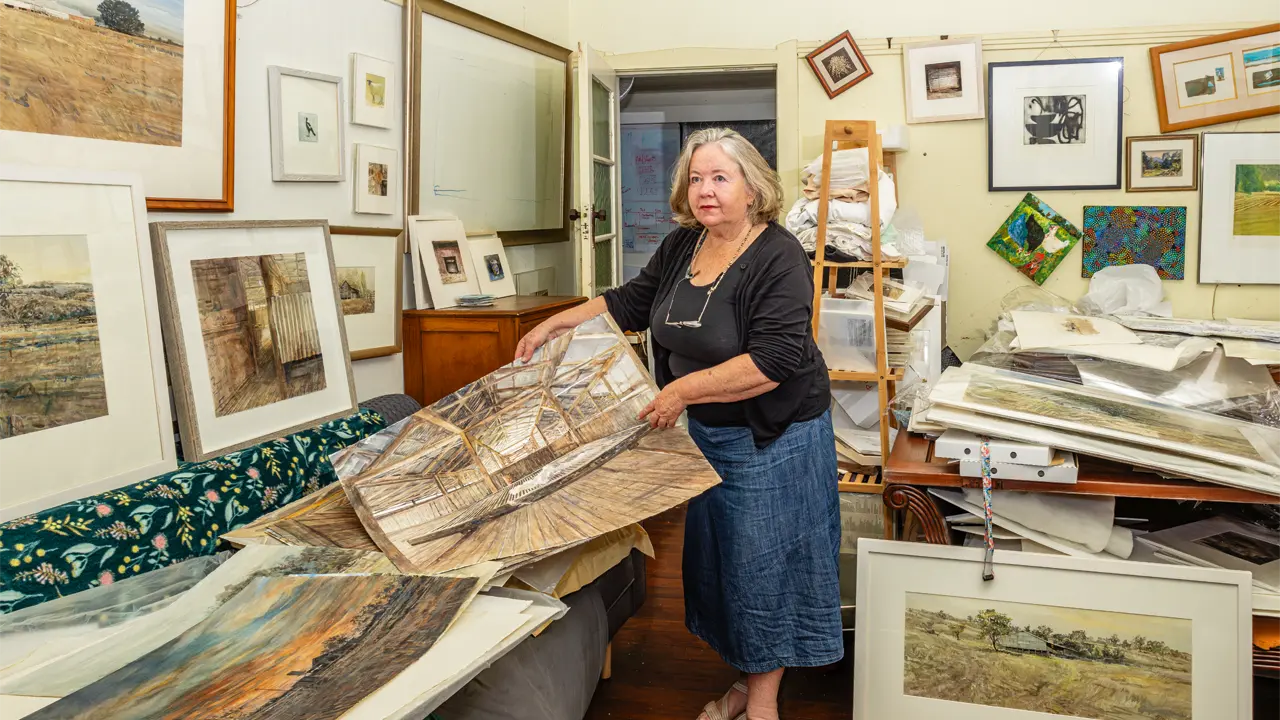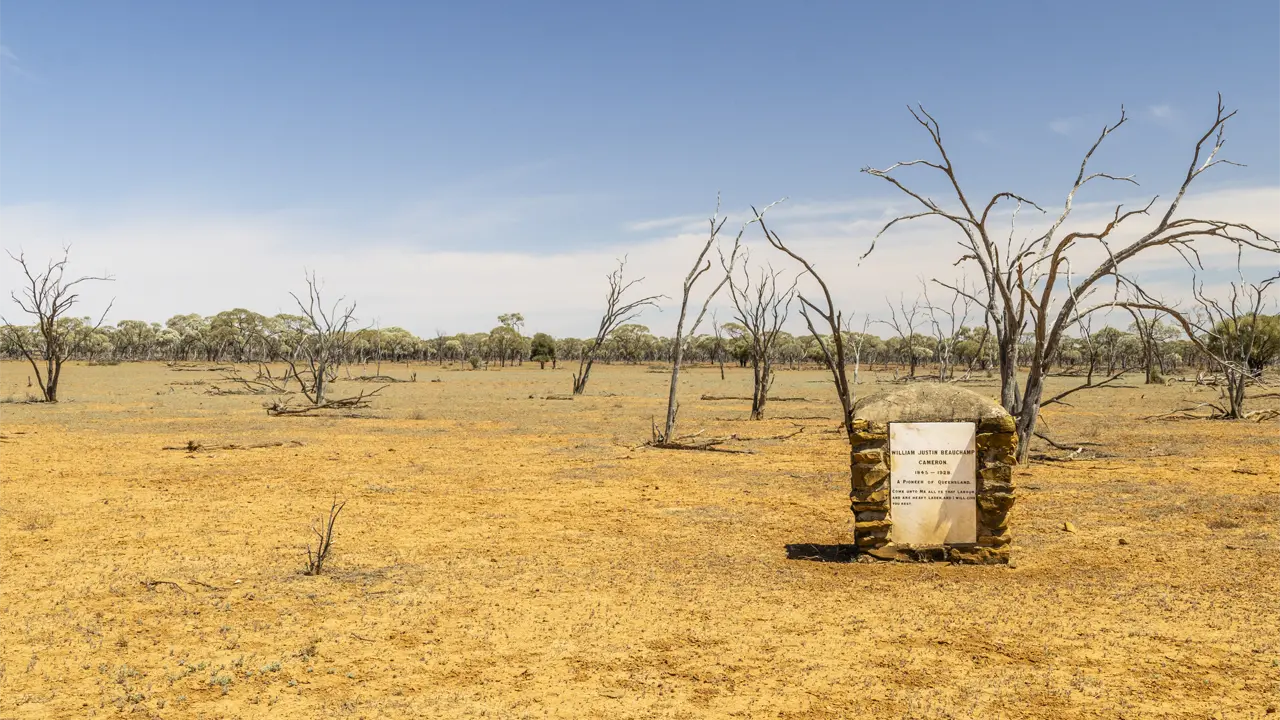Whether you need a grave dug, tyre fixed, laundry done or a spare part for your vehicle, chances are Innamincka’s Rhyna Nicholls can help you.
Story By Jane Canaway
With only seven permanent residents in their town, the people of Innamincka, SA, have to be fairly self-sufficient. But one of them, Rhyna Nicholls, takes multi-skilling to a whole new level, even by outback standards.
The owner of Innamincka Earthmoving Pty Ltd, Rhyna runs her business with just one employee – mechanic Kim Townsend, a Tibooburra-born and bred man who can also turn his hand to fixing or operating pretty much anything.
When the project to deliver geothermal energy to Innamincka kicked off in 2006, it was one of Rhyna’s diggers that turned the first sod. And by default, she is also the town undertaker. Visitors to the town are most likely to meet her through her tyre-fixing service or Kim’s gift of bringing anything mechanical back to life. A side business is the town laundromat; self-service cappuccinos available.
“Multi-skilling is a catchword nowadays, but in the bush we’ve been doing it since we selected the place, because we had to,” Rhyna says. Making a coffee in her warehouse-sized open-plan home, she warms to the topic – that Australia is losing its ‘can-do’ attitude and bush skills as the rural population declines.
“My late husband probably had two years of schooling if that – he could barely read and write – but he was an outstanding operator of machinery and ran an outstanding company,” Rhyna says. “He carried all his jobs in his head. And my father probably received 18 months of schooling, but ran a very successful fourth-generation property. As a nation I think we’re in danger of losing our young warriors because they don’t learn those life skills.”
There’s no doubt Rhyna has those skills and is busy instilling them in her 15-year-old son, Sam. But while there’s an element of the Amazon about Rhyna, it’s her strongly intuitive femininity that shines through. Before she sits down to take a rare break from work, she performs a fascinating ritual with her youngest dog, a blue heeler called ‘Gem’. Getting him to sit up on his haunches on a dining-room chair, she pours him a cup of milk, which he politely proceeds to lap from the tin mug, paws gently resting on the table. “If you treat them right, they’ll do anything for you,” she says. “Same as people, really.”
While strong and determined, the trim, nuggety woman has the gentle air of a horse whisperer about her; just as her sun-kissed hands are firm from manual work, but her neatly cut nails carry a hint of pale pink polish.
Rhyna grew up on Tandora Station, on the Mary River near Maryborough, Qld. She describes it as “harsh country” in the saltwater section of river, about eight kilometres from its mouth, where the river is about 1.6km wide. “All coastal country is poor,” she says. “We can do more with it now but it was difficult country then.”
Rhyna was a few years younger than her brother and sister and had independence thrust on her from an early age. “I think I got in the way of my mother needing to be out helping my father,” she says. “I was left alone at home when Mum went out for half a day to work – with a cattle dog to look after me – and, when I was older, I’d go out and work with them, then get sent home early to start the fire and tea. I’d peel veggies, milk the cows, lock up the calves, feed the chooks and so on, so when Dad got home after dark, the meal was already started.”
She remembers mustering long-legged Brahman cattle in heavily treed country where they could disappear into the scrub. “My father [Gordon Titmarsh] was one of the first in the area to introduce Brahman stock,” Rhyna says. “Before being bred with shorthorns, they were very leggy and when range-fed they’d take off when they got a sniff of you.”
This story excerpt is from Issue #68
Outback Magazine: Dec/Jan 2010









